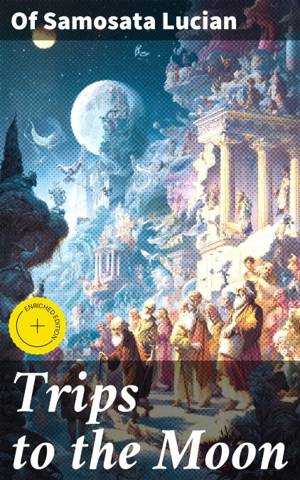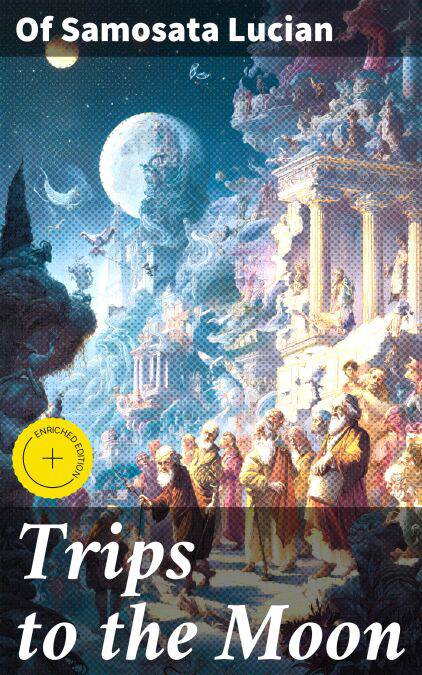
- Retrait en 2 heures
- Assortiment impressionnant
- Paiement sécurisé
- Toujours un magasin près de chez vous
- Retrait gratuit dans votre magasin Club
- 7.000.0000 titres dans notre catalogue
- Payer en toute sécurité
- Toujours un magasin près de chez vous
Trips to the Moon EBOOK
Enriched edition. Exploring the Absurdities of Society: A Satirical Journey to the Moon
Of Samosata Lucian
Ebook | Anglais
1,99 €
+ 1 points
Description
In "Trips to the Moon," Lucian of Samosata employs a satirical and whimsical narrative style to explore the boundaries between reality and fantasy. This early work of science fiction presents an imaginative journey to the moon, showcasing Lucian's deft use of parody and humor in critiquing contemporary philosophical and literary notions. As a product of the 2nd-century Greco-Roman literary context, the book captures the essence of ancient skepticism and invites readers to question prevailing beliefs through its fantastical premise. Lucian's imaginative escapades not only entertain but also provoke critical thought about human nature and societal norms. Lucian of Samosata, a Greek satirist and philosopher, was known for his wit and bold commentary on various themes, including religion, philosophy, and the absurdities of his time. His extensive travels and exposure to different cultures allowed him to adopt multiple perspectives, which he cleverly interwove into his works. This background likely inspired him to pen "Trips to the Moon," fueling his penchant for irony and satire while employing mythological tropes in an insightful manner. I highly recommend "Trips to the Moon" to readers who appreciate a vibrant blend of humor and philosophical inquiry. Lucian's innovative narrative not only paves the way for modern science fiction but also remains relevant for contemporary readers seeking to reflect on the cosmic and earthly dilemmas of existence.
In this enriched edition, we have carefully created added value for your reading experience:
- A succinct Introduction situates the work's timeless appeal and themes.
- The Synopsis outlines the central plot, highlighting key developments without spoiling critical twists.
- A detailed Historical Context immerses you in the era's events and influences that shaped the writing.
- A thorough Analysis dissects symbols, motifs, and character arcs to unearth underlying meanings.
- Reflection questions prompt you to engage personally with the work's messages, connecting them to modern life.
- Hand‐picked Memorable Quotes shine a spotlight on moments of literary brilliance.
- Interactive footnotes clarify unusual references, historical allusions, and archaic phrases for an effortless, more informed read.
In this enriched edition, we have carefully created added value for your reading experience:
- A succinct Introduction situates the work's timeless appeal and themes.
- The Synopsis outlines the central plot, highlighting key developments without spoiling critical twists.
- A detailed Historical Context immerses you in the era's events and influences that shaped the writing.
- A thorough Analysis dissects symbols, motifs, and character arcs to unearth underlying meanings.
- Reflection questions prompt you to engage personally with the work's messages, connecting them to modern life.
- Hand‐picked Memorable Quotes shine a spotlight on moments of literary brilliance.
- Interactive footnotes clarify unusual references, historical allusions, and archaic phrases for an effortless, more informed read.
Spécifications
Parties prenantes
- Auteur(s) :
- Traducteur(s):
- Editeur:
Contenu
- Nombre de pages :
- 177
- Langue:
- Anglais
Caractéristiques
- EAN:
- 4057664176288
- Date de parution :
- 19-11-19
- Format:
- Ebook
- Protection digitale:
- Digital watermarking
- Format numérique:
- ePub

Seulement chez Librairie Club
+ 1 points sur votre carte client de Librairie Club
Les avis
Nous publions uniquement les avis qui respectent les conditions requises. Consultez nos conditions pour les avis.







